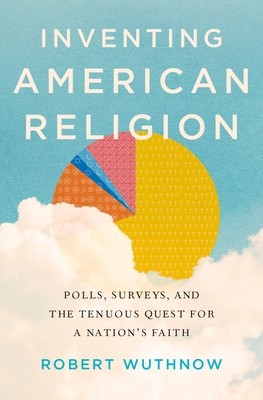
- We will send in 10–14 business days.
- Author: Robert Wuthnow
- Publisher: Oxford University Press, USA
- ISBN-10: 019025890X
- ISBN-13: 9780190258900
- Format: 15.2 x 23.1 x 2.5 cm, kieti viršeliai
- Language: English
- SAVE -10% with code: EXTRA
Reviews
Description
Today, a billion-dollar-a-year polling industry floods the media with information. Pollsters tell us not only which political candidates will win, but how we are practicing our faith. How many Americans went to church last week? Have they been born again? Is Jesus as popular as Harry Potter? Polls tell us that 40 percent of Americans attend religious services each week. They show that African Americans are no more religious than white Americans, and that Jews are abandoning their religion in record numbers. According to leading sociologist Robert Wuthnow, none of that is correct. Pollsters say that attendance at religious services has been constant for decades. But during that time response rates in polls have plummeted, robotic "push poll" calls have proliferated, and sampling has become more difficult. The accuracy of political polling can be known because elections actually happen. But there are no election results to show if the proportion of people who say they pray every
day or attend services every week is correct. A large majority of the public doubts that polls can be trusted, and yet night after night on TV, polls experts sum up the nation's habits to an eager audience of millions.
EXTRA 10 % discount with code: EXTRA
The promotion ends in 22d.23:59:23
The discount code is valid when purchasing from 10 €. Discounts do not stack.
- Author: Robert Wuthnow
- Publisher: Oxford University Press, USA
- ISBN-10: 019025890X
- ISBN-13: 9780190258900
- Format: 15.2 x 23.1 x 2.5 cm, kieti viršeliai
- Language: English English
Today, a billion-dollar-a-year polling industry floods the media with information. Pollsters tell us not only which political candidates will win, but how we are practicing our faith. How many Americans went to church last week? Have they been born again? Is Jesus as popular as Harry Potter? Polls tell us that 40 percent of Americans attend religious services each week. They show that African Americans are no more religious than white Americans, and that Jews are abandoning their religion in record numbers. According to leading sociologist Robert Wuthnow, none of that is correct. Pollsters say that attendance at religious services has been constant for decades. But during that time response rates in polls have plummeted, robotic "push poll" calls have proliferated, and sampling has become more difficult. The accuracy of political polling can be known because elections actually happen. But there are no election results to show if the proportion of people who say they pray every
day or attend services every week is correct. A large majority of the public doubts that polls can be trusted, and yet night after night on TV, polls experts sum up the nation's habits to an eager audience of millions.


Reviews